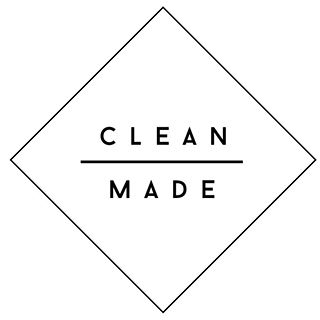What's in That Drink?! Is LaCroix Really 'All-Natural'?
A new lawsuit filed against the makers of LaCroix claims that America’s newest obsession is not, in fact, ‘all-natural’ as claimed.
So, should you be worried?
Well, it’s complicated.
It’s not hard to get caught up in this lawsuit or feel a little concerned about what’s really in this drink when there’s claims like this released by the law firm filing suit…
“testing reveals that LaCroix contains a number of artificial ingredients… LaCroix in fact contains ingredients that have been identified by the Food and Drug Administration as synthetic. These chemicals include limonene, which can cause kidney toxicity and tumors; linalool propionate, which is used to treat cancer; and linalool, which is used in cockroach insecticide.”
But there’s more than meets the eye here. As Popular Science writer Neel V. Patel argues in this article, these claims represent a bit of flawed logic, alarmist language, and use the FDA’s murky language about ‘natural’ vs ‘synthetic’ to make things sounds much, much worse than they are.
While it’s true that these ingredients are classified by the FDA as ‘chemicals’ and can be used in things like insecticide and cancer treatments, that doesn’t mean they’re not naturally occurring or that they’re harmful to humans in any way. As anyone who has ever used citrus essential oils to dissolve adhesive can tell you, it’s possible for these things to be both ‘natural’ and powerful in high doses.
But is there any merit here? We won’t know for sure until the case goes to court, but in the meantime, there are a few aspects of this topic that may be important to consider as you’re making choices about the products you use.
– Phrases like ‘100 Percent Natural’ and ‘All-natural’ are totally meaningless.
These phrases aren’t regulated in any way, and it have no real meaning. Anyone can use it to claim anything, and sadly, they do. So don’t be fooled by slick packaging or flashy terms.
– Chemicals are not all bad.
As Scientific American put it – “We are chemicals.” Everything is, including water and the (hopefully clean) air we breathe. So chemicals themselves are not a bad thing. But some chemicals can be dangerous to our bodies, our environment, and the long-term health of our planet. These chemicals are worth paying attention to an avoiding. Unfortunately the list of these things is long and ever-changing.
– The FDA classifications for ingredients like limonene are tricky and confusing.
Limonene is naturally occurring substance and a ‘majority component’ in the peels of citrus fruits and in most cases is derived directly from the fruit, but is also classified as a “synthetic flavoring substance.” Setting up perfectly the case against LaCroix at hand.
– Natural Flavoring can easily contain things like preservatives or additional synthetic additives without losing their “natural” classification. Additionally, there are thousands of things that can be used in these “all natural” products in small enough increments not to have to be disclosed, including gums, stabilizers and preservatives, so buyer beware. “Natural flavors” in particular can be big problem for many. Like anything, a process of elimination is best to see if any of these products are a problem for you.
So, if you take anything away from this lawsuit, let it be this– our FDA classification and labeling laws are not exactly helpful and are simultaneously over and under regulated making it extremely difficult to discern what’s actually in a product.
Sadly, it now requires research to be a savvy shopper and it’s become really easy to caught up in packaging or seemingly helpful phrases like ‘all-natural’. Greenwashing is also alive and well and has made the role of the consumer even more difficult than ever before and to be honest, all of this can get pretty exhausting and confusing. Thankfully, there’s some great resources out there like EWG working hard to make all of this a little more clear. You probably already rely on them for their yearly update to the dirty dozen and clean 15 lists, and we’ve found them to be really helpful when we’re considering things like household cleaners and sunscreen. Just remember that your research isn’t a one-and-done kind of thing. The information is changing constantly, as are product formulations, so remember to recheck information often. Yes, this is all kind of a pain.
TBH, we’re lazy and we’ve often found it easiest to just stick to products with simple, clear ingredients, and (whenever possible) to make our own.
So if you’re concerned and feel like waiting this whole thing out, it’s probably not necessary, but we don’t exactly blame you. And let’s be honest, it’s pretty easy to pop a few slices of lemon in our sparking water in the meantime.





